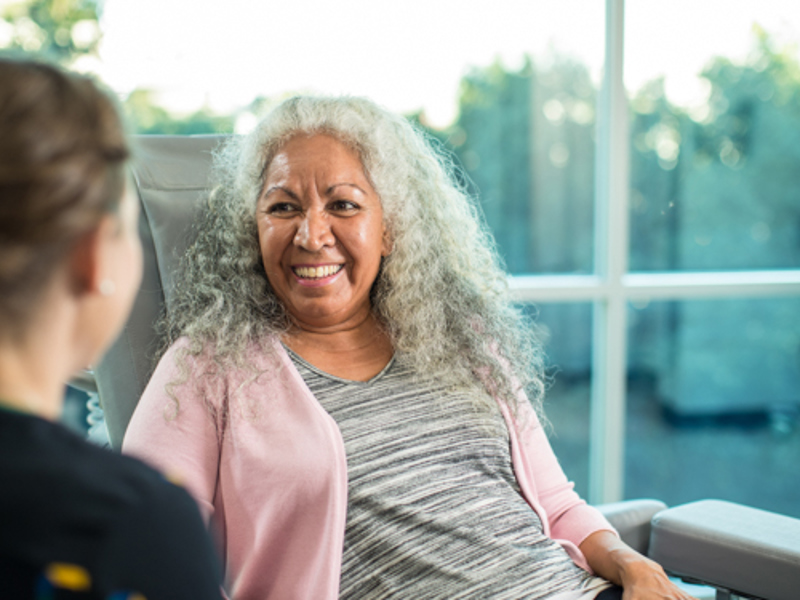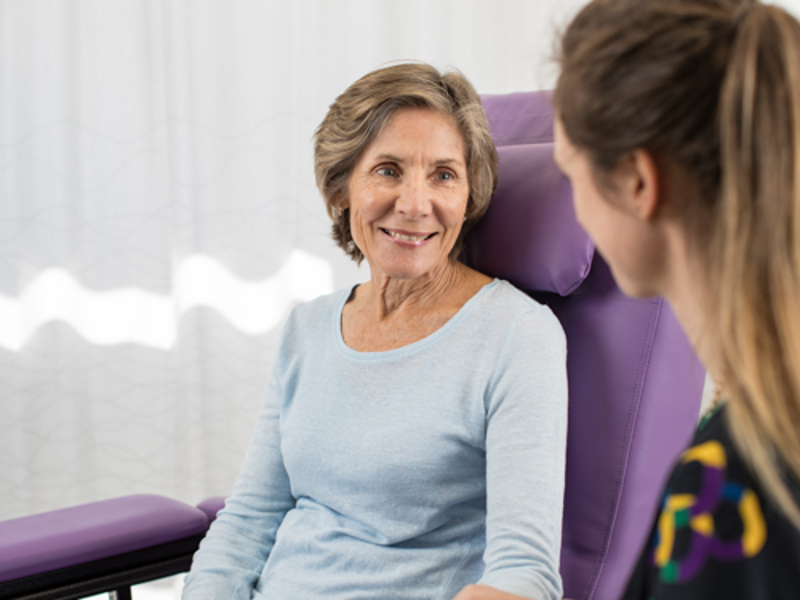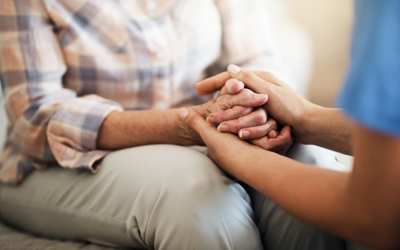What is thrombocytopenia or low platelets?
Thrombocytopenia refers to a reduction in the normal levels of functional platelets, which can increase your risk of bruising and bleeding. Low platelet counts can occur due to disease or can be side effects of chemotherapy and/or radiotherapy.
What are the signs and symptoms of thrombocytopenia?
You may bleed for longer than normal after minor cuts or scrapes, have nosebleeds or bleeding gums, or bruise easily.
These could also be accompanied by symptoms of anaemia, which include:
Fatigue and tiredness
Pale skin
Difficulty catching your breath
Dizziness

How can low platelet levels be prevented or managed?
Your doctor will monitor your platelet level with blood tests if you are at risk of low platelets. To help prevent injury/bleeding when you are at risk of or have low platelets, you should:
Use an electric razor
Use a soft toothbrush and avoid dental floss or toothpicks
Wear gloves and protective shoes in the garden
Avoid using aspirin and ibuprofen like medications for pain relief (talk to your care team for further information)
If you experience minor bleeding, basic first aid principles apply:
Apply direct pressure on the wound
Elevate the injured limb if possible
Rest
A platelet transfusion may be necessary depending on your clinical situation.

When should I seek help from a health professional?
You should report signs and symptoms of anaemia to your care team. You should go to the nearest hospital emergency department or call an ambulance if you experience rectal bleeding, nose bleeds, or coughing, vomiting or urinating blood.
Every patient is different. Please discuss your own personal situation with your treating doctor or Icon care team.




